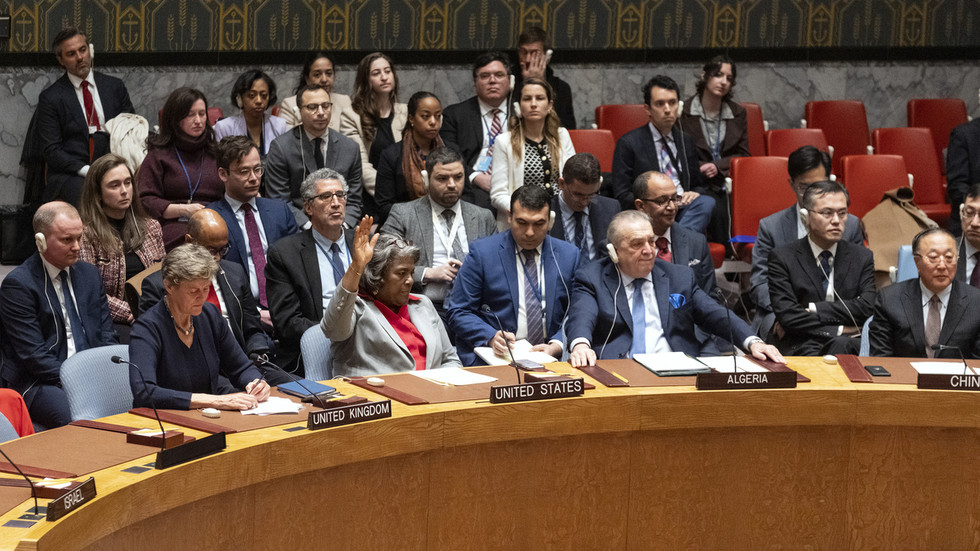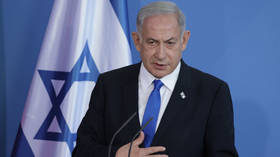
The Israeli PM has manufactured an artificial crisis by venting differences in public, according to the outlet

US ambassador Linda Thomas-Greenfield votes to abstain as the UN Security Council passed a cease-fire resolution in Gaza, March 25, 2024 © AP Photo / Craig Ruttle
The White House has been “perplexed” by what several US officials called an overreaction by Israeli Prime Minister Benjamin Netanyahu to Washington’s decision not to veto a UN Security Council resolution on Gaza, according to a report by Axios.
The UNSC passed the resolution on Monday, demanding an “immediate” ceasefire between Israel and Hamas and unconditional release of remaining Israeli hostages, while highlighting “the urgent need to expand the flow” of aid into Gaza.
The US abstained from casting its vote, prompting Netanyahu’s office to accuse it of a “clear retreat from the consistent position of the US” since the start of the war – and to cancel a high-level mission to Washington ahead of planned Israeli military operation in southern Gaza city of Rafah.
“All of that is self-defeating. The prime minister could have chosen a different course – to align with the US on the meaning of this resolution. He chose not to, apparently for political purposes,” the outlet cited one US official as saying.
“If Prime Minister Netanyahu felt so strongly, why didn’t he call President Biden?” another official wondered.

White House spokesman John Kirby called the cancellation of the Israeli delegation’s visit “disappointing” and said that Washington was “perplexed by this” because the US abstention “does not represent a shift in our policy.” Meanwhile, State Department spokesman Matthew Miller argued that the US did not use its veto power because the call for a ceasefire and for the release of hostages is consistent with Washington’s policy, calling the resolution “non-binding.”
Netanyahu allegedly used the UN vote as a pretext to not send a delegation to Washington because he “was afraid we might offer something reasonable,” another unnamed official claimed, according to Axios. “He would rather have a fight with us even if it’s not in Israel’s interest… It’s also a funny way to treat a partner that has given Israel so much support.”

Israel declared war on Hamas on October 7, after the militants carried out a cross-border raid, killing more than 1,100 people and taking at least 250 hostages. More than 30,000 Palestinians have been killed in Israel’s bombings and ground operations in Gaza since that time, according to the enclave’s health service.
Israel is planning to launch a ground assault on Rafah despite international warnings of a potential catastrophe. More than half of Gaza’s population has fled to take refuge in the city due to the ongoing Israeli bombardment of other parts of the enclave.




